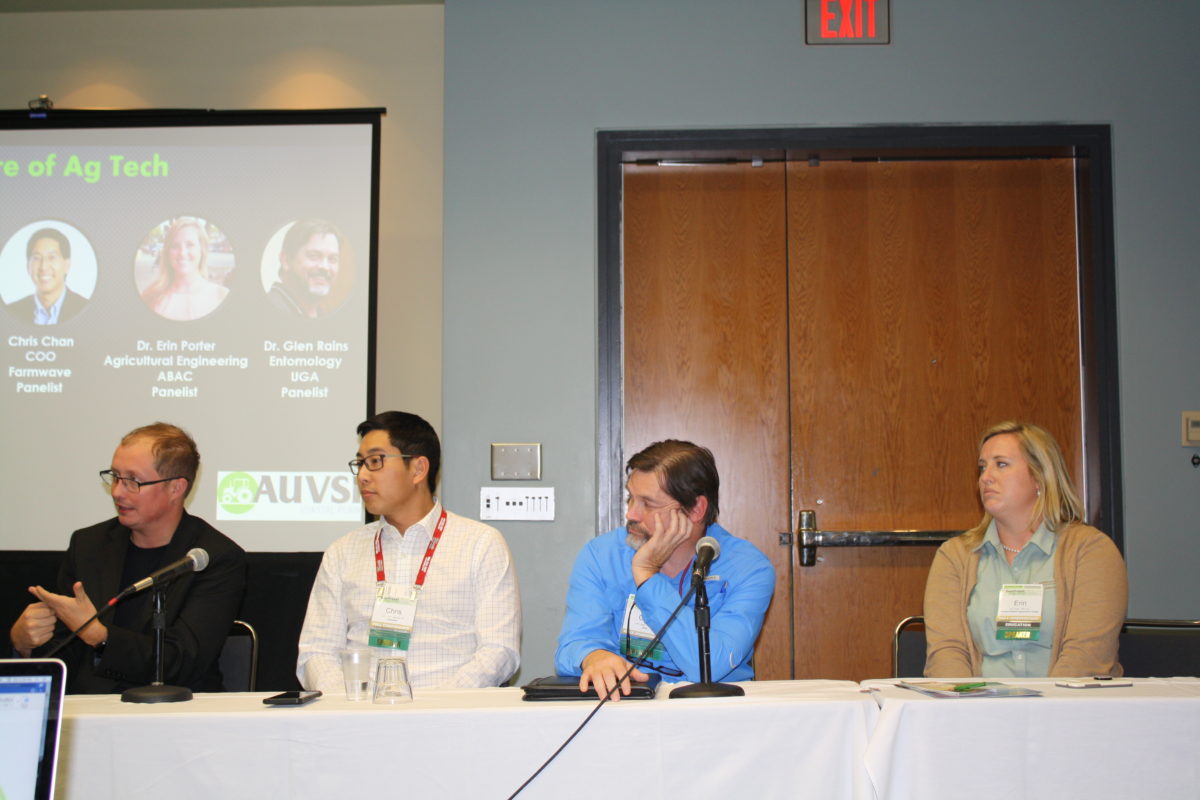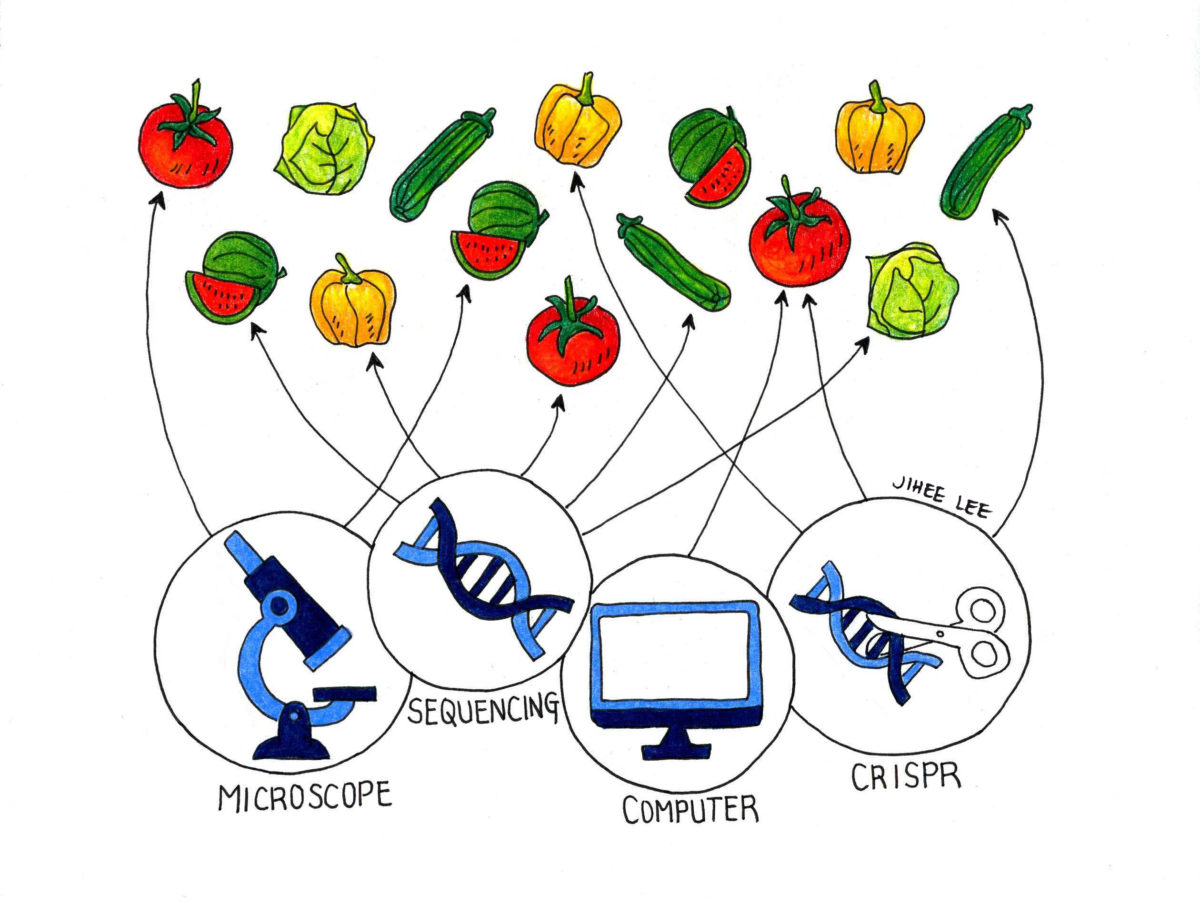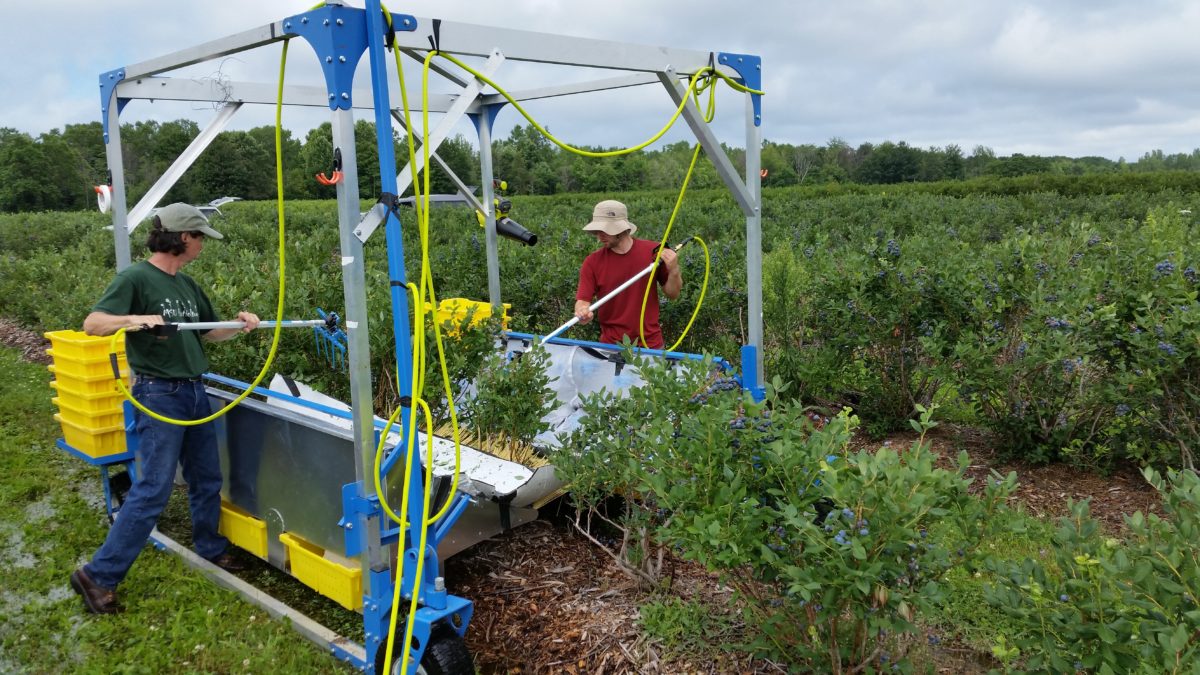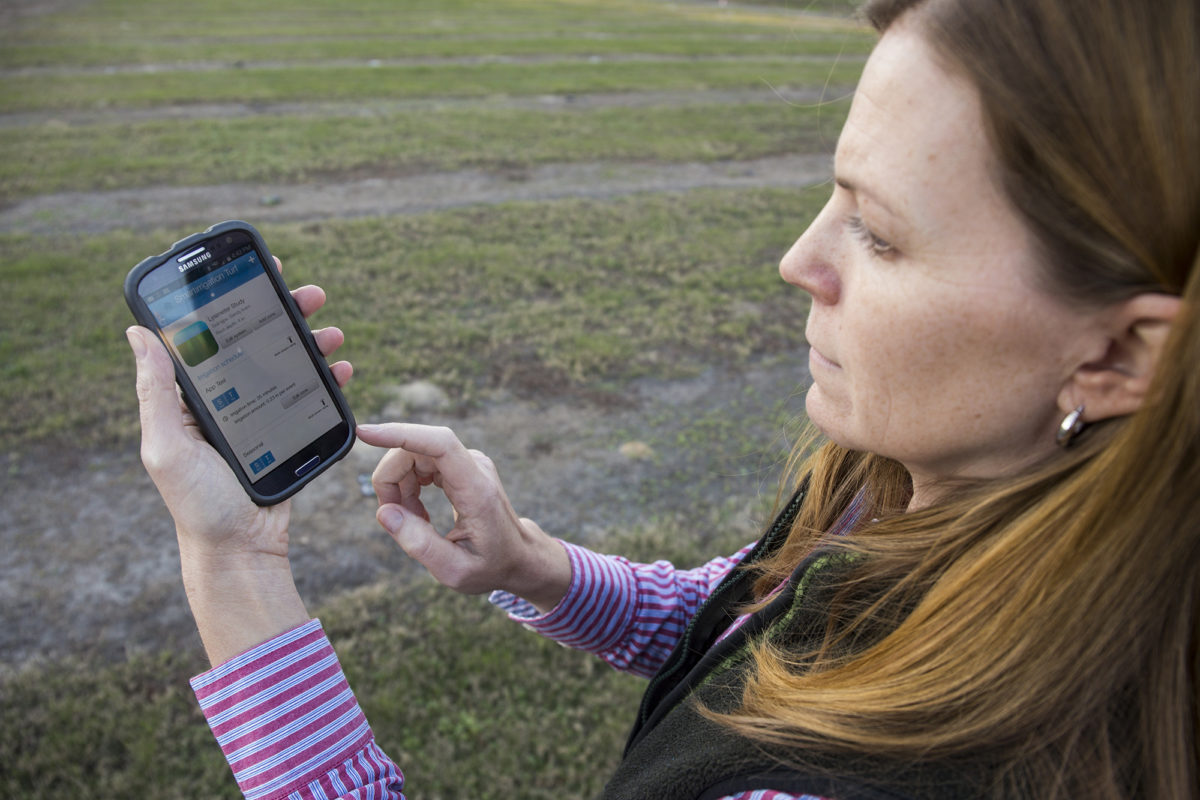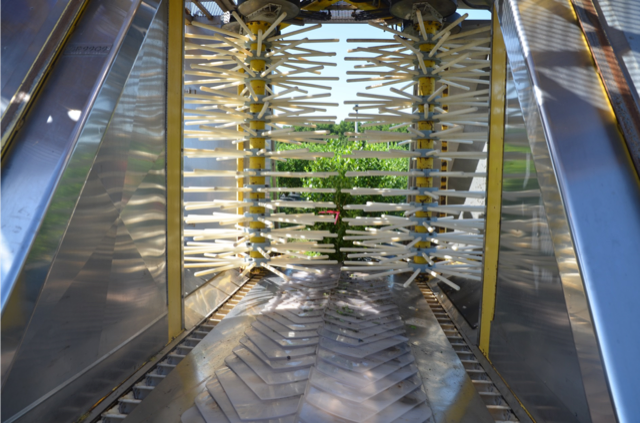By Yiannis Ampatzidis Traditional broadcast sprayers usually treat the entire field to control pest populations, potentially resulting in unnecessary application to areas that do not require treatment. These sprayers apply agrochemicals uniformly, even though distribution of weeds is typically patchy. This results in wastage of valuable compounds, increased costs, crop damage risk, pest resistance to chemicals, environmental pollution and contamination …
‘Harvesting Is Just the Beginning’
By Ernie Neff An experimental robotic strawberry harvester appears to barely creep through a field in Duette, Florida. That belies a flurry of activity occurring out of sight. “It’s walking speed as it moves through the field, but the robots are moving at a good clip inside,” says Scott Jantz. “These robots are spinning underneath … furiously picking plants.” Jantz …
Encouraging Plant Breeding Innovation
Plant breeding tends to be a point of contention between the industry and urbanites. However, Andy LaVigne, president and CEO of the American Seed Trade Association, believes all crops begin at plant breeding. “We look at plant breeding as the base of agriculture,” says LaVigne. LaVigne believes innovation in plant breeding has helped the industry understand why a plant does …
Agriculture Advancements Get Boost from Technology Advocate
By Karla Arboleda Nikolas Badminton says he has spent his career helping the world move forward by adopting technology. As CEO of Exponential Minds, a company that helps people invest in advanced technologies, Badminton sees plenty of opportunity to work with growers. “We’ve got more data than we’ve ever had before,” he says. Badminton summarizes information he presented at the …
Advancing Technology in Agriculture
By Alison DeLoach High-price specialized agricultural equipment is not affordable for many family farms. Glen Rains, professor at the University of Georgia in the College of Agricultural & Environmental Sciences, is working to create a solution to this problem. Rains participated in a panel discussion on the future of agricultural technology at the 2019 Southeast Regional Fruit and Vegetable Conference. …
Drone Technology on the Rise
Many growers are adopting new technologies, including drones, to aid their production systems. According to Jim Fletcher, a University of Florida (UF) regional water specialist and interim BMP coordinator, drones could bring growers to the next level. Currently, Fletcher says drones can fly over fields and identify areas where there may be an issue with the plants. Then the grower …
Genomic Technologies for Breeding Better Crops
By Tong Geon Lee The rapid explosion of genomic data in studies of plant genetics and biology is revolutionizing crop breeding. This progress has been driven by advances in genomic technologies. While genomic technologies are becoming increasingly common to plant breeders and geneticists, there has been a call for building a shared understanding of these technologies between non-scientific and scientific …
Improving Mechanical Harvesting of Fresh-Market Blueberries
By Fumiomi Takeda The growth of the blueberry industry in the past three decades has been remarkably robust. For the blueberry industry to remain competitive and sustainable, growers are seeking solutions to ever-increasing problems with labor shortages and rising labor costs for harvesting blueberries by hand. More growers are now using over-the-row (OTR) mechanical harvesters to pick blueberries for the …
Technology Increases Productivity
By Breanna Kendrick Some of the biggest advances in agricultural production happen due to technology. Kati Migliaccio, professor and chair of the Agricultural and Biological Engineering (ABE) Department at the University of Florida, focuses on some of the technology used to improve crops and how it helps get food from the field to the table. Engineers in the ABE department …
Making Headway Toward Machine Harvesting of Blueberries
By Doug Phillips With rising costs and declining availability of harvesting labor, blueberry growers are increasingly interested in considering machine harvesting for their crops. Cost is a particularly important factor because of declining profit margins due to competition from lower-cost areas of production. PROS AND CONS Hand harvesting produces high-quality fruit, but can cost between $0.70/pound and $0.90/pound for local …










